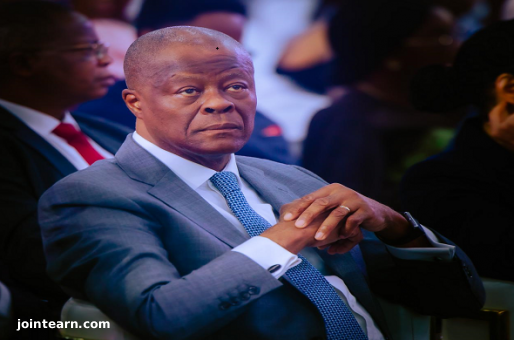
Nigeria has officially assumed leadership of the Intergovernmental Group of Twenty-Four (G-24), pledging to champion reforms aimed at creating a fairer, more responsive, and inclusive global financial system. The country’s chairmanship is represented by Minister of Finance and Coordinating Minister of the Economy, Mr. Wale Edun.
The G-24, a coalition of developing and emerging economies, has historically advocated for restructuring the international monetary system to better reflect the interests of its members. Speaking at the assumption of office, Edun outlined Nigeria’s central theme: “Optimising resource development for inclusive, job-rich economic transformation.”
This vision focuses on leveraging human, financial, physical, and natural resources to achieve sustainable and inclusive growth. To realize this, Nigeria’s chairmanship will pursue five strategic priorities:
- Reforming the Global Financial Architecture – Strengthening the International Monetary Fund’s Global Financial Safety Net, expanding concessional financing through Multilateral Development Banks, advancing governance reforms, and modernizing payment systems to support local currency trade.
- Enhancing Domestic Resource Mobilisation and International Tax Cooperation – Deepening engagement on global tax agendas, promoting transparency, combating illicit financial flows, and reforming domestic tax systems to expand fiscal space for development.
- Mobilising Innovative Finance for Development – Promoting innovative financing models that reward reform-minded countries and support instruments like blended finance, green bonds, and sustainability-linked debt swaps.
- Strengthening Regional Integration and Value-Added Manufacturing – Championing regional economic cooperation to boost competitiveness, attract investment in value-added manufacturing, and promote South-South collaboration for industrial productivity.
- Advancing Climate Finance and Just Energy Transitions – Advocating for energy transitions that reflect the realities of energy-deficient but resource-rich nations, promoting resilient infrastructure, and sustaining commitments to climate targets amid rising global energy demand.
Edun emphasized that Nigeria will seek to deepen the G-24’s influence in global financial governance, ensuring developing economies have a stronger voice in shaping international financial decisions. “Our goal is to build a future of equity, resilience, and inclusive job-rich growth,” he said.
The minister also highlighted the global challenges facing emerging economies, including debt distress, limited access to capital, and a $4–5 trillion annual financing gap in achieving the Sustainable Development Goals (SDGs). He noted the demographic transition of 1.2 billion young people joining the global workforce in the next 10–15 years, underscoring the urgency of structural transformation and policy coordination.
Nigeria takes over the G-24 chairmanship from Argentina’s Minister of Treasury, Mr. Luis Caputo, with a commitment to advance sustainable development, regional cooperation, and inclusive prosperity for all member nations.
The G-24 currently comprises 29 full member countries across Africa, Asia, Latin America, and the Caribbean, with China participating as a special invitee.


Leave a Reply